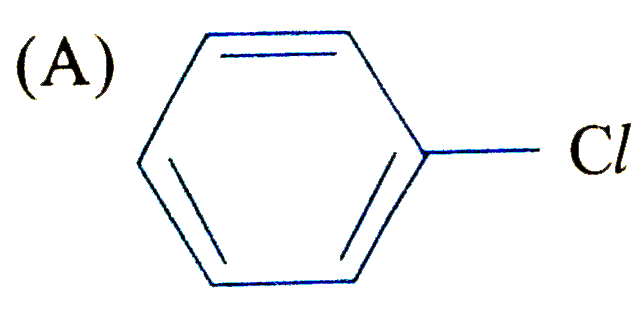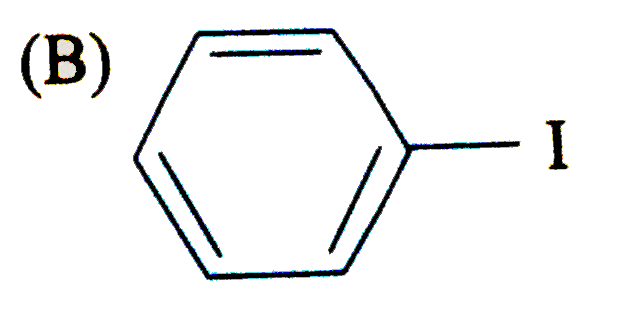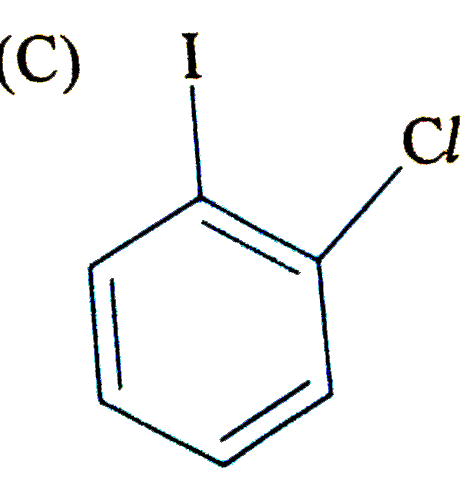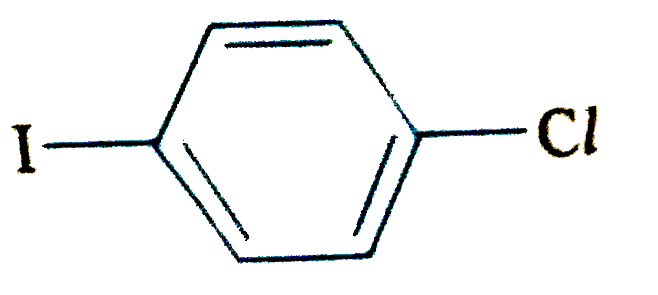Assertion : Fredel - craft reaction between benzene and acetic anhydride in the presence of anhydrous AlCl3 yields acetophenone and not poly - substituted products .
Reasons : Acetophenone formed poisons the catalyst preventing further reaction.
If both assertion and reason are correct and reason is correct explanation for assertion.
If both assertion and reason are correct but reason is not correct explanation for assertion.
If assertion is correct but a reason is incorrect.
If assertion and reason both are incorrect.
To solve the question regarding the assertion and reason provided, we will analyze both statements step by step.
1. Understanding the Assertion:
- The assertion states that the Friedel-Crafts reaction between benzene and acetic anhydride in the presence of anhydrous AlCl3 yields acetophenone and not poly-substituted products.
- Friedel-Crafts acylation is a type of electrophilic aromatic substitution where an acyl group (from acetic anhydride in this case) is introduced to the benzene ring.
2. Reaction Mechanism:
- In the presence of anhydrous AlCl3, acetic anhydride generates an acylium ion, which acts as the electrophile.
- The acylium ion attacks the benzene ring, leading to the formation of acetophenone.
3. Why No Poly-Substitution?:
- The formation of acetophenone is favored, and further substitution is hindered due to the electron-withdrawing nature of the carbonyl group in acetophenone.
- The presence of the carbonyl group decreases the electron density on the benzene ring, making it less reactive towards further electrophilic attack.
4. Understanding the Reason:
- The reason states that acetophenone formed poisons the catalyst, preventing further reaction.
- While it is true that acetophenone can interact with the catalyst (AlCl3), the primary reason for the lack of poly-substitution is due to the electron-withdrawing effect of the carbonyl group, which makes the benzene ring less reactive.
5. Conclusion:
- The assertion is correct because the reaction yields acetophenone and not poly-substituted products.
- However, the reason is not entirely correct as it does not accurately explain why poly-substitution does not occur. The correct explanation lies in the electron-withdrawing nature of the carbonyl group, not merely the poisoning of the catalyst.
Final Answer:
- The correct option is C: The assertion is correct, but the reason is incorrect.
- The assertion states that the Friedel-Crafts reaction between benzene and acetic anhydride in the presence of anhydrous AlCl3 yields acetophenone and not poly-substituted products.
- Friedel-Crafts acylation is a type of electrophilic aromatic substitution where an acyl group (from acetic anhydride in this case) is introduced to the benzene ring.
- In the presence of anhydrous AlCl3, acetic anhydride generates an acylium ion, which acts as the electrophile.
- The acylium ion attacks the benzene ring, leading to the formation of acetophenone.
- The formation of acetophenone is favored, and further substitution is hindered due to the electron-withdrawing nature of the carbonyl group in acetophenone.
- The presence of the carbonyl group decreases the electron density on the benzene ring, making it less reactive towards further electrophilic attack.
- The reason states that acetophenone formed poisons the catalyst, preventing further reaction.
- While it is true that acetophenone can interact with the catalyst (AlCl3), the primary reason for the lack of poly-substitution is due to the electron-withdrawing effect of the carbonyl group, which makes the benzene ring less reactive.
- The assertion is correct because the reaction yields acetophenone and not poly-substituted products.
- However, the reason is not entirely correct as it does not accurately explain why poly-substitution does not occur. The correct explanation lies in the electron-withdrawing nature of the carbonyl group, not merely the poisoning of the catalyst.
- The correct option is C: The assertion is correct, but the reason is incorrect.
Topper's Solved these Questions
- BOOK - CBSE COMPLEMENTARY MATERIALCHAPTER - HYDROCARBONSEXERCISE - ONE WORD TYPE QUESTION10videos
HYDROCARBONS
- BOOK - CBSE COMPLEMENTARY MATERIALCHAPTER - HYDROCARBONSEXERCISE - 1- MARK QUESTION30videos
HYDROCARBONS
- BOOK - CBSE COMPLEMENTARY MATERIALCHAPTER - HYDROCARBONSEXERCISE - MATCH THE COLUMNS2videos
HYDROCARBONS
- BOOK - CBSE COMPLEMENTARY MATERIALCHAPTER - EQUILIBRIUM EXERCISE - UNIT TEST6videos
EQUILIBRIUM
- BOOK - CBSE COMPLEMENTARY MATERIALCHAPTER - HYDROGENEXERCISE - Unit Test11videos
HYDROGEN
Similar Questions
Knowledge Check
- Question 1 - Select One
(A) Friedel-Crafts reaction between benzene and acetic angydride in presence of anhydrous AICI3 yields acetophenone and not polysubstitution product.
( R) Acetophenone formed poisons the catalyst, preventing further reaction.AIf both (A) and ( R) are correct and ( R) is corrct explanation of (A).BIf both (A) and ( R) are correct but ( R) is not the corrct explanation of (A).CIf (A) is incorrect but ( R) is incorrect.DIf (A) is incorrect but ( R) is incorrect. - Question 2 - Select One
When benzene is heated with acetic anhydride in presence of anhydrous AlCl3, is product formed is-
ABenzoin acidBAcetophenoneCEthylphenyl ketoneDBenzophenone - Question 3 - Select One
Benzene on reaction with ICI in presence of anhydrous AlCl3 gives?
A B
B C
C D
D
Reaction of benzene with Me3CCOCl in the presence of anhydrous AlCl3 gives
View SolutionReaction of benzene with Me3CCOCl in the presence of anhydrous AlCl3 gives
View SolutionReaction of Benzene with Me3CCOCl in the presence of anhydrous AlCl3 gives
View SolutionReaction of benzene with Me3COCl in the presence of anhydrous AlCl3 gives
View SolutionAcetic anhydride reacts with diethyl ether in presence of anhydrous AICI3 to form
View Solution

